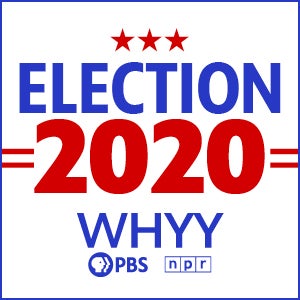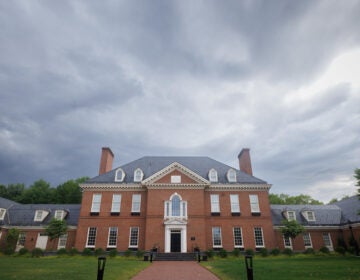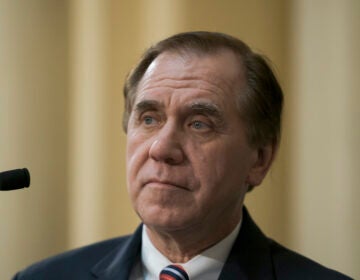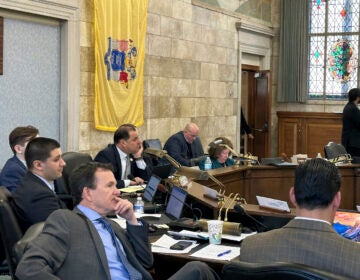Philly election officials said a contract barred them from releasing transcripts. It didn’t.
Philadelphia’s City Commissioners haven’t been releasing transcriptions of their meetings, saying a contract with their stenographer prevents it. Turns out, it doesn’t.
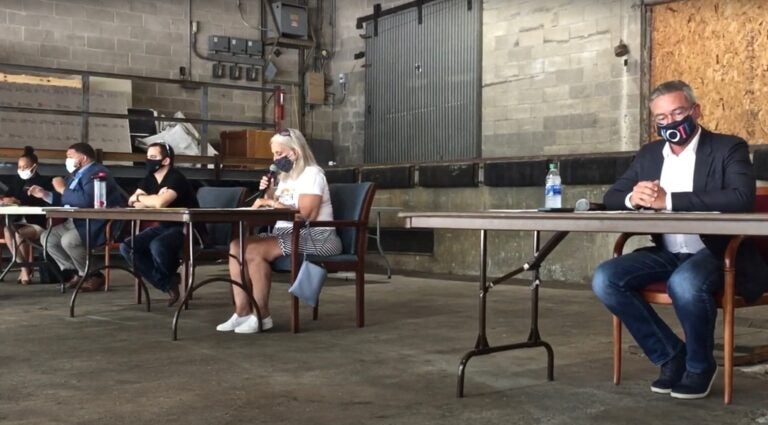
The first open meeting of the Philadelphia Board of Elections since June 22 took place in front of four members of the public, in the loading dock of the new voting machine warehouse at 3500 Scotts Lane in East Falls. (YouTube)
After an apparent misunderstanding of their contract with a stenography company, the Philadelphia City Commissioners say they may begin releasing transcripts of their public meetings.
The commissioners, who oversee elections in the city, pay a stenographer to write down what happens at their meetings. But those transcripts don’t become public, nor do the commissioners release meeting minutes.
Asked why, Deputy Commissioner Nick Custodio first said that “per the City’s contract with the stenography company, copies of transcripts must be obtained directly from them.”
Pressed on what exactly the contract required, and why the commissioners couldn’t release abbreviated minutes after their meetings, as many state and city departments do, Custodio changed course.
The transcription contract that covers the commissioners and the city’s other departments, he said, actually “explicitly” allows transcripts to be provided on city websites.
“Therefore, the staff is in discussions about doing so in the near future,” he said.
That’s welcome — if frustrating — news to Rich Garella, a co-founder of the watchdog group Protect Our Vote Philly, who has been pressing the commissioners to be more transparent.
“If the Board of Elections starts releasing transcripts promptly after meetings, that is a big improvement and I’m happy for it,” he said. “But I frankly have a hard time believing that they never knew that they were allowed to do that, given that every other agency in the city is apparently on the same contract and has been free to do it for years.”
Garella believes the commissioners are “possibly the most opaque agency the city has,” and recently redoubled his calls for transparency after commissioners decided to resume their customary weekly election meetings in person, without livestreaming them online.
They chose a relatively far-flung warehouse to hold those meetings, and Garella and the rest of POV Philly thought the decision made important election information too inaccessible to the general public.
That issue, he said, is compounded by the fact that the commissioners don’t release detailed meeting agendas ahead of time, and don’t release minutes or transcripts after.
“When we’ve asked for transcripts in the past from the commissioners, they told us that we could either file a right-to-know request, which could take over a month… or that we could order a transcript from the transcription company,” Garella said.
He added that when he called the transcription company, “they said the minimum charge for a transcript was $175, so that’s really not practical for normal people.”
A representative for the company Garella said he was directed to, Strehlow and Associates, didn’t return a request for comment.
Philadelphia’s contracts are public record, and the city provides a portal through which they can be looked up online.
The Strehlow and Associates contract that covers the commissioners took effect in early 2018.
It stipulates that “the City has the right, exercisable at its discretion, to make any recordings and transcripts available to the public. These may be provided on the City’s website for viewing and for download, on other online outlets, or through informal and formal requests.”
It adds, “recordings and transcripts will be provided royalty-free, and may be distributed and duplicated.”
A spokesman for the mayor’s office confirmed that the contract is current and covers the commissioners.
Custodio said the confusion over the contract stemmed from the fact that it was “negotiated and signed completely without our involvement,” and that different terms were in place previously.
“In her first year, Commissioner [Lisa] Deeley tried to put the transcripts on the website, but the Chairman’s office, at the time, gave her that explanation [that the contract forbade republishing],” he said in an email. “It hasn’t been revisited since.” Deeley began serving as a commissioner in 2016.
For his part, Garella said he’s concerned about meeting transcripts because he wants to make sure Philadelphians know how their elections are being conducted — particularly as the city prepares for an unprecedented general election to be conducted during a pandemic, when far more people will vote by mail and the postal service is experiencing significant delays.
“The rules are changing,” he said. “This is a time when the Board of Elections really needs to have public input, and when the public really needs to understand and trust what the Board of Elections is doing.”

Get daily updates from WHYY News!
WHYY is your source for fact-based, in-depth journalism and information. As a nonprofit organization, we rely on financial support from readers like you. Please give today.



